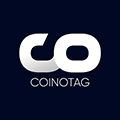Taiko Dominates Ethereum Layer-2 Blobs Market Despite High Costs
0
0

- Ethereum’s layer-2 network, Taiko, has surged to the forefront for offering dedicated data storage known as blobs, despite the high operational costs incurred daily.
- While the expenditure on blobs reaches spectacular highs, Taiko aims to enhance transaction speed and affordability on the Ethereum network by integrating its security principles.
- According to Daniel Wang, CEO of Taiko Labs, this design choice, while costly, provides a decentralized sequencing system beneficial for Ethereum’s ecosystem.
With Taiko’s innovative approach in Ethereum layer-2 scaling, the network is challenging conventional methods and reshaping the landscape of blockchain technology.
Taiko’s Strategic Vision and Market Impact
Taiko launched its protocol in May to offer users more cost-effective and rapid transactions than Ethereum’s primary network. The significant investment of $900,000 in blobs over less than a fortnight underscores Taiko’s commitment to its unique approach. While strategies employed by competitors like the Optimism network incur lower daily fees, Taiko’s expenditure goes beyond $100,000 occasionally. The key differentiator lies in Taiko’s use of Ethereum’s security features.
Funding and Technological Edge
Earlier this year, Taiko Labs secured $15 million in a Series A funding round, showcasing investor confidence. The protocol adopts ‘zero-knowledge’ cryptography, marking a notable divergence from typical layer-2 architectures. This cryptographic method seeks to enhance transaction privacy and efficiency. Despite significant blob costs, this strategic decision is seen as a long-term investment in decentralized scalability.
Decentralized Sequencing: A Costly But Secure Method
Traditional layer-2 solutions batch transactions before processing them on secondary chains and then submit summaries to Ethereum. Taiko, however, sequences these transactions directly on Ethereum, ensuring higher decentralization. Taiko Labs describes this as “base sequencing,” advocating for more decentralized and secure transaction ordering.
Industry Perspective and Community Insights
Alexei Zamyatin, co-founder of Bitcoin layer-2 network BOB, notes that while expensive, Taiko’s method enhances security beyond the standard centralization risks of other layer-2s. Crypto researcher arixon.eth echoed the expense concerns on social media but also hinted at potential modifications, such as reducing blob posting frequency to alleviate costs.
Comparative Advantage and Potential Adjustments
According to Taiko Labs, the high operational costs reflect a deliberate design choice rather than a flaw. CEO Daniel Wang mentioned that if fully utilized, Taiko may reach a cost-effective equilibrium. Furthermore, reducing the frequency of block proposals could decrease fee levels, aligning expenditures with network utilization rates.
Long-Term Vision and Ethereum Ecosystem Impact
Taiko’s goal extends beyond immediate cost management; it aims to pioneer decentralized sequencing that could fundamentally support Ethereum’s layer-2 scaling. By driving such innovative practices, Taiko not only consolidates its market presence but also invites academic scrutiny to refine Ethereum’s scalability.
Conclusion
Taiko’s novel approach in the Ethereum layer-2 space represents a critical advancement towards decentralized transaction processing. While the financial outlay for blobs is substantial, the network’s strategic vision and commitment to decentralization lay the groundwork for long-term sustainability and potential enhancement of the Ethereum ecosystem.
0
0
 Manage all your crypto, NFT and DeFi from one place
Manage all your crypto, NFT and DeFi from one placeSecurely connect the portfolio you’re using to start.







